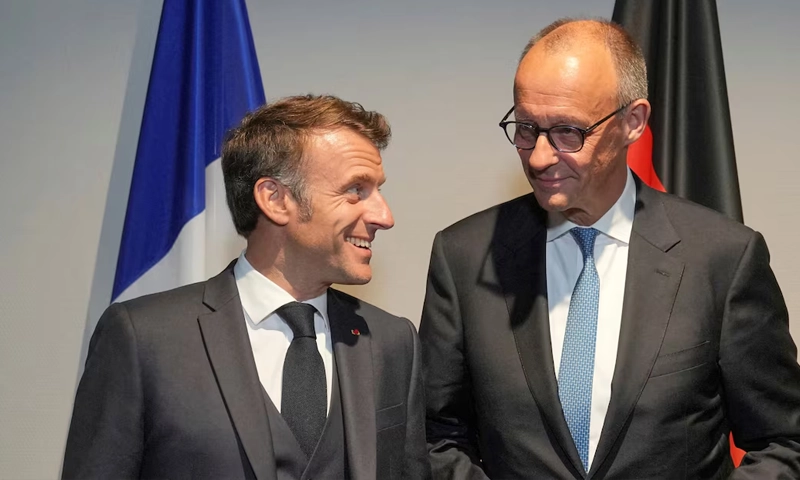- Web
- Feb 20, 2026
Macron for trade stability, lowest tariffs
-

- Reuters
- Jul 23, 2025

BERLIN/BRUSSELS: French President Emmanuel Macron said on Wednesday he would coordinate with German Chancellor Friedrich Merz and their other European counterparts on how to respond to the incoming US tariffs, adding he wanted those to be as low as possible.
“Today, we are responding to the tariff offensive that has been launched with a determination that we share: to provide stability and have the lowest possible tariffs,” he said alongside Merz ahead of a meeting between the two leaders in Berlin.
A 15% TARIFF US-EU DEAL
The European Union is heading towards a trade deal with Washington that would result in a broad 15 per cent tariff on EU goods imported into the US, avoiding a harsher 30 per cent levy slated to be implemented from August 1, two EU diplomats said on Wednesday.
The rate, which could also extend to cars, would mirror the framework agreement the United States struck with Japan.
Officials from the European Commission, which negotiates trade deals on behalf of the 27-nation bloc, briefed EU envoys on the state of talks with their US counterparts.
US President Donald Trump would ultimately make any final decision on a deal, however.
Read more: US-EU trade deal: It’s ‘hard to predict’, outlook is ‘gloomy’
Under the outlines of the potential deal, the 15 per cent rate could apply to sectors including cars and pharmaceuticals and would not be added to long-standing US duties, which average just under 5 per cent.
There could also be concessions for sectors like aircraft, lumber as well as some medicines and agricultural products, which would not face tariffs, the diplomats said.
Washington does not, however, appear willing to lower its current 50 per cent tariff on steel, they said.
ANTI-COERCION MEASURES
The Commission said earlier on Wednesday that its primary focus was to achieve a negotiated outcome to avert the threatened 30 per cent tariffs.
At the same time it planned to submit counter-tariffs on 93 billion euros ($109 billion) worth of US goods to EU members for approval. A vote is expected on Thursday, though no measures would be imposed until August 7.
Germany supported the EU readying countermeasures, a government representative said.
Read more: EU terms Trump’s 30pc tariff threat ‘absolutely unacceptable’
If Trump’s 30 per cent tariffs are implemented, EU diplomats also said there was broad support among European governments to activate wide-ranging so-called “anti-coercion” measures, which would allow the bloc to target US services and other sectors.
US-JAPAN DEAL AS TEMPLATE?
The EU appears to be following in the footsteps of Japan, whose agreement with the United States is the most significant Trump has struck since launching his tariff offensive in April.
European shares climbed around 1 per cent, led by automobile stocks, following the US-Japan announcement.
One stand-out feature of that deal was that the same 15 per cent rate applies to cars, compared to the current US tariff of 27.5 per cent, something the EU may want for its own auto exports.
The US imported vehicles and automotive parts valued at more than $55 billion from Japan last year. EU exports were 47.3 billion euros ($55.45 billion). Far fewer US cars were sold into the EU or Japanese markets.
EU officials say Washington has shown little sign of budging on car tariffs, but the Japan deal could hint at flexibility.
“Whatever the Japanese got will become the minimum for the EU negotiating objectives,” said Simon Evenett, professor of geopolitics and strategy at IMD Business School.




